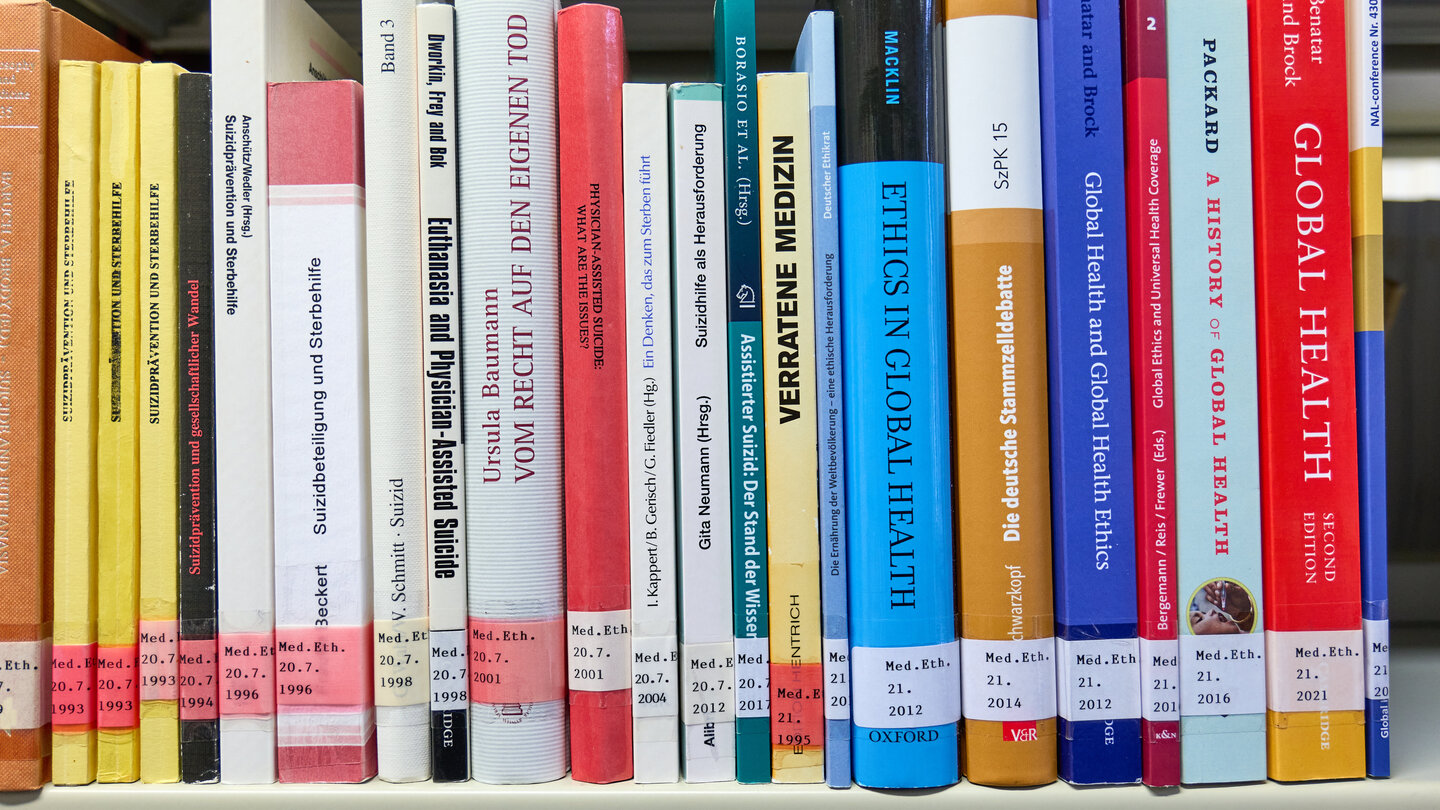General information about doctoral studies at the Institute for Ethics and History of Medicine
At the Institute for Ethics and History of Medicine, we supervise doctoral theses in the fields of ethics, culture, theory, and history of medicine, as well as theses in the humanities and social sciences.
When pursuing a doctoral degree in medicine in our field, it is important to note that this requires methodological knowledge of humanities and social science work, which you will need to acquire as part of your doctoral project. In our experience, you should plan for an additional 1-2 years.
Topics are assigned via the UMG portals (LUPO) or upon direct request, among other ways.
A doctoral degree at the Institute requires regular, active participation in the Institute's doctoral colloquium, which takes place once per semester. Further requirements must be clarified with the respective supervisor.
Information on assigning
The decision on the allocation of a doctoral thesis topic is usually made only after the supervisor has had the opportunity to get to know the student on the basis of their performance in a course. This effort cannot normally be made by candidates who are working and do not live in Göttingen or the surrounding area.
It is also advisable to have a certain ease in writing texts, which is particularly important for argumentation in the humanities, so that the completion of the thesis does not become a torment for the doctoral supervisor and doctoral candidate. Please understand that we want to get an idea of these skills before we accept you as a doctoral candidate. It is in your interest. (Of course, you can become a good doctor even without being able to write beautifully!)
Requirements
Doctoral training at the Institute for Ethics and History of Medicine includes (valid from the 2011 winter semester):
- Regular active participation in the biannual block seminar “Doctoral Colloquium” (only excused absences will be accepted).
- Mandatory participation in the seminar “Introduction to Bioethics” (every winter semester) or participation in at least two elective seminars in medical ethics
- Half-day course “Literature Research” (offered by Tobias Weidner at least once a year as needed)
- Regular participation in events on “Current Contributions to Medical Ethics”; these include: lectures, research colloquia, institute colloquia, or workshops of the Institute for Ethics and History of Medicine (at least two per semester)
- Since the 2022/23 winter semester, doctoral students in human medicine and dentistry are required to participate in the preparatory course before registering their thesis.
Topic selection
The choice of topics is made in close consultation with the supervisors. At our institute, we currently supervise topics that are part of the research focus of Professor Schicktanz and Professor Simon, which can be viewed on their websites and under the heading of current research projects.
Time frame
We recommend starting a doctoral thesis in our subject area from the second clinical semester onwards. A semester off is necessary in order to focus on intensive data collection or the writing phase. A doctoral thesis on medical history or medical ethics cannot be completed alongside the requirements of the practical year or other medical activities.
As part of the exposé, you will draw up a schedule for writing the doctoral thesis that takes into account the various necessary phases as well as other framework conditions such as studies, clinical internships, planned semesters abroad, or care obligations. Ideally, the dissertation should be largely completed in writing before the start of the second state examination.
Medical dissertations can be written either as a traditional paper of around 100 pages or cumulatively (at least one peer-reviewed article as first author). For doctorates in philosophy, sociology, or the doctoral subject sci. hum, different conditions apply, which can be found on the websites of the respective faculties.
Introductory event
All doctoral students are strongly advised to attend the lecture series “Research Ethics” in Module 2.4. In addition, interested students can participate in our institute's one-day doctoral colloquium, which takes place regularly during the semester and offers a good insight into the current doctoral theses and procedures at the institute. Dates for this can be obtained from the institute's office at the beginning of each semester.
General information on medical doctorates can be obtained in advance at:
https://www.umg.eu/studium-lehre/promotion/
Faculty doctoral supervisor
contact information
- telephone: +49 551 3961015
- e-mail address: umg.promotionsbeauftragte(at)med.uni-goettingen.de
consulting time
- Donnerstag 9:30-11:00
Further information on doctoral studies at UMG
